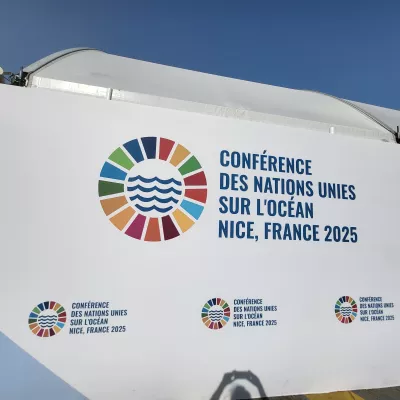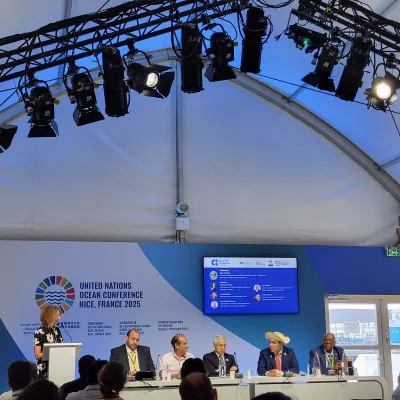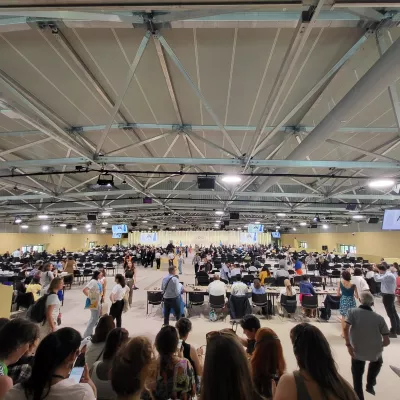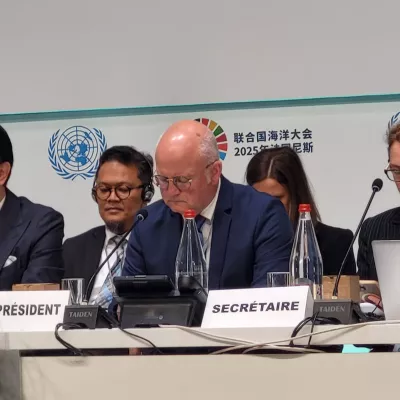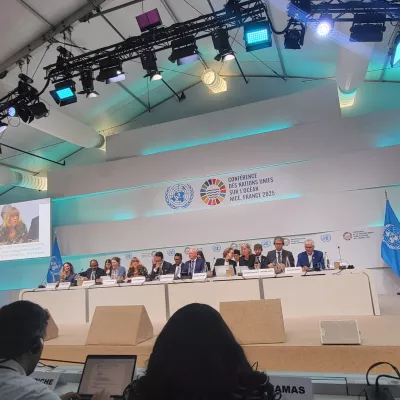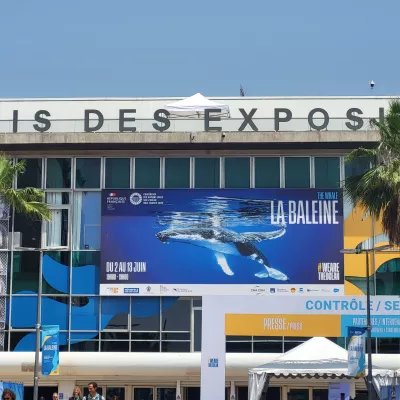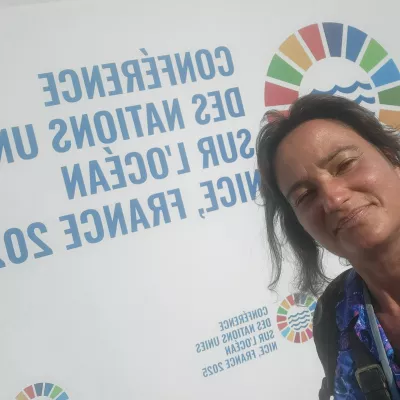Towards a common blue future: from ambition to action
From 9 to 13 June 2025, Nice was the scene of the third UN Ocean Conference. The focus was not only on setting ambitions, but also on accelerating work on solutions. The conference led to the adoption of the Nice Ocean Action Plan,, and marked major breakthroughs in ocean finance, governance, inclusion and innovation.
Several countries, including Belgium, formally ratified the High Seas Treaty during the conference. The treaty provides for the first time a binding legal framework to protect biodiversity in marine areas beyond national borders. Those areas together cover as much as two-thirds of the ocean.
Another key theme at the conference was the need for sustainable and structural funding for ocean restoration. Although the ocean is crucial to our planet, it remains severely underfunded. Initiatives such as One Ocean Finance aim to change this with a more coherent and inclusive ocean finance architecture.
Main message: from knowledge to action
UNOC3 stressed that a lot of scientific insights on the state of the ocean are already available. However, to address current challenges, there is still a need for coordinated action, political will, funding and fair ocean governance. The following concerns were raised:
- We need to let go of silo thinking and strengthen cooperation between sectors and disciplines;
- Nature-based solutions should be at the heart of ocean policy;
- Local communities, women, youth and indigenous knowledge should be actively involved in decision-making.
Major results and commitments
- High Seas Treaty: 55 countries, including Belgium, have ratified the BBNJ Convention. The convention is expected to enter into force on 1 January 2026.
- Funding for blue economy: Public and private actors pledged €8.7 billion. The UN is working on a new financing mechanism by 2028.
- One Ocean Finance Initiative: Launched as a new framework for inclusive, coherent and values-driven ocean finance.
- Moratorium on deep-sea mining: 37 countries, including several EU member states, called for a halt to commercial deep-sea mining.
- New marine protected areas: Including French Polynesia, Colombia, Tanzania and Chile, where exclusive economic zone (EEZ) protection was greatly expanded.
- Sea'ties Declaration: 70 coastal cities committed to work together on coastal protection and measures to adapt to rising sea levels.
- Protection of coral reefs: 11 countries pledged accelerated action to restore climate-resilient coral ecosystems.
- UNOC3 as a scientific milestone: For the first time, the UN conference began with a major international science conference with concrete recommendations.
Ocean Action Panels
Several Ocean Action Panels took place during UNOC 3. These are thematic working groups in which countries collaborate on tangible solutions for a healthy and sustainable ocean. They bring together stakeholders from around the world - from policymakers and scientists to NGOs and local communities - to exchange knowledge and develop joint action plans.
Each panel addressed a concrete theme, ranging from coastal protection and sustainable fisheries to ocean restoration funding. Would you like to know more about the key insights and recommendations from the various Ocean Action Panels? Reach out to us.
Takeaways
UNOC3 in Nice set a new global standard for ocean policy: based on science, equity and cooperation. A clear signal was given that the era of non-committal promises is over. What matters now is implementation.
For Belgium, this offers opportunities to strengthen its blue policies around governance, financing, ecosystems and international cooperation. In this way, we can make a structural contribution to a healthy, resilient ocean.
Input from Blue Cluster
During the conference, Blue Cluster was part of the Belgian delegation at the Nice Ocean Business Forum, a side event organised by the European Network of Maritime Clusters (ENMC). Out colleague Kinnie De Beule closed the roundtable discussion on sectoral innovation and cooperation in the blue economy.
In her closing speech, she stressed the importance of cross-border cooperation and the key role of maritime clusters as a bridge between policy and businesses. Blue Cluster actively contributes to themes such as maritime safety, sustainable food production, ocean energy, nature-based solutions and marine spatial planning.
The key message? There is a need for concrete action. By implementing innovative solutions we can achieve sustainable growth and contribute to the international goals for ocean protection.
